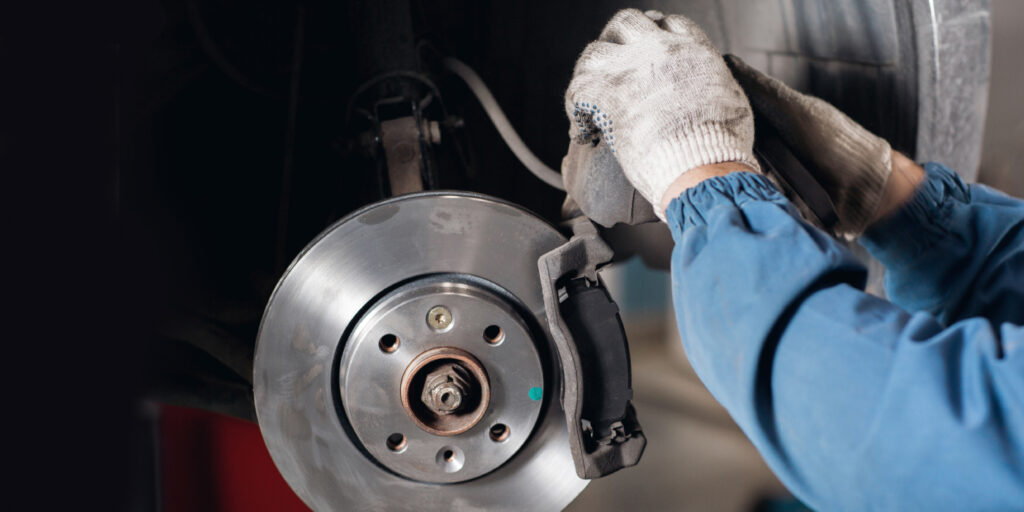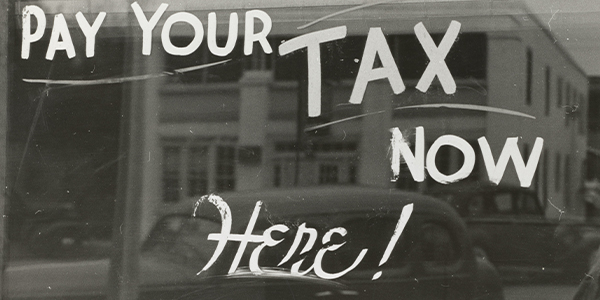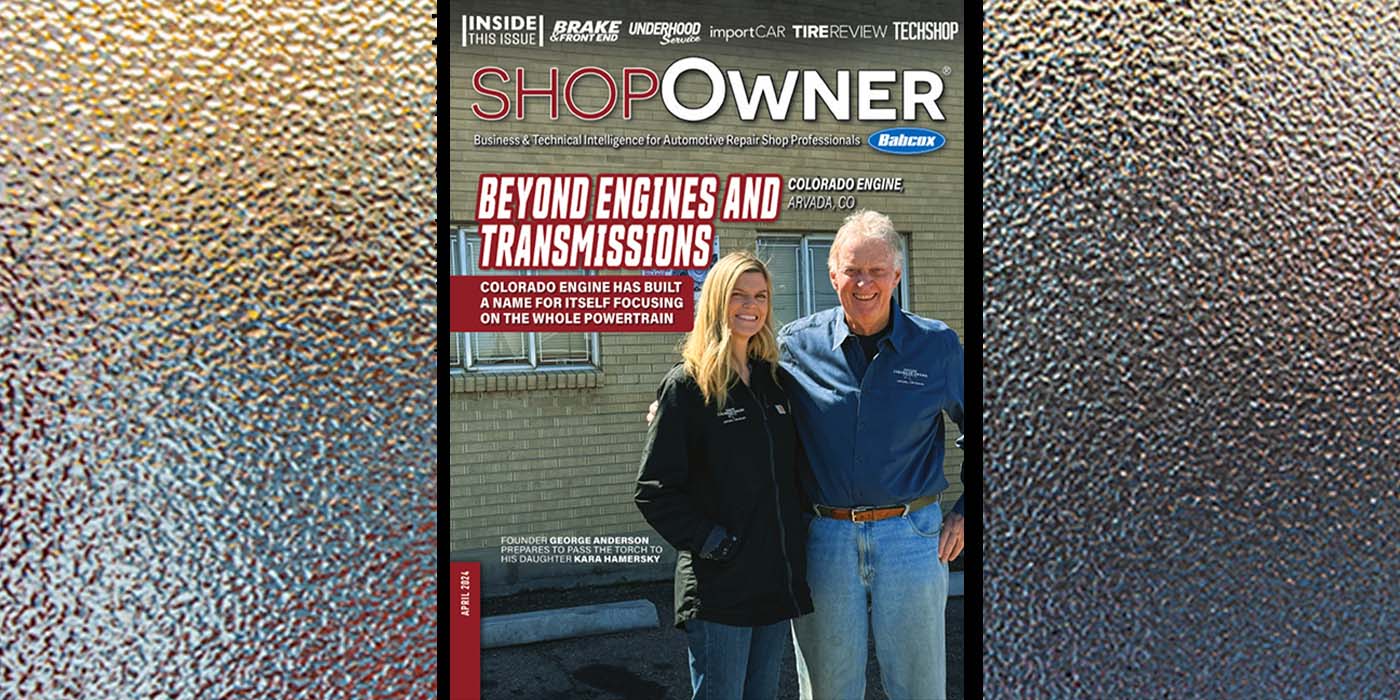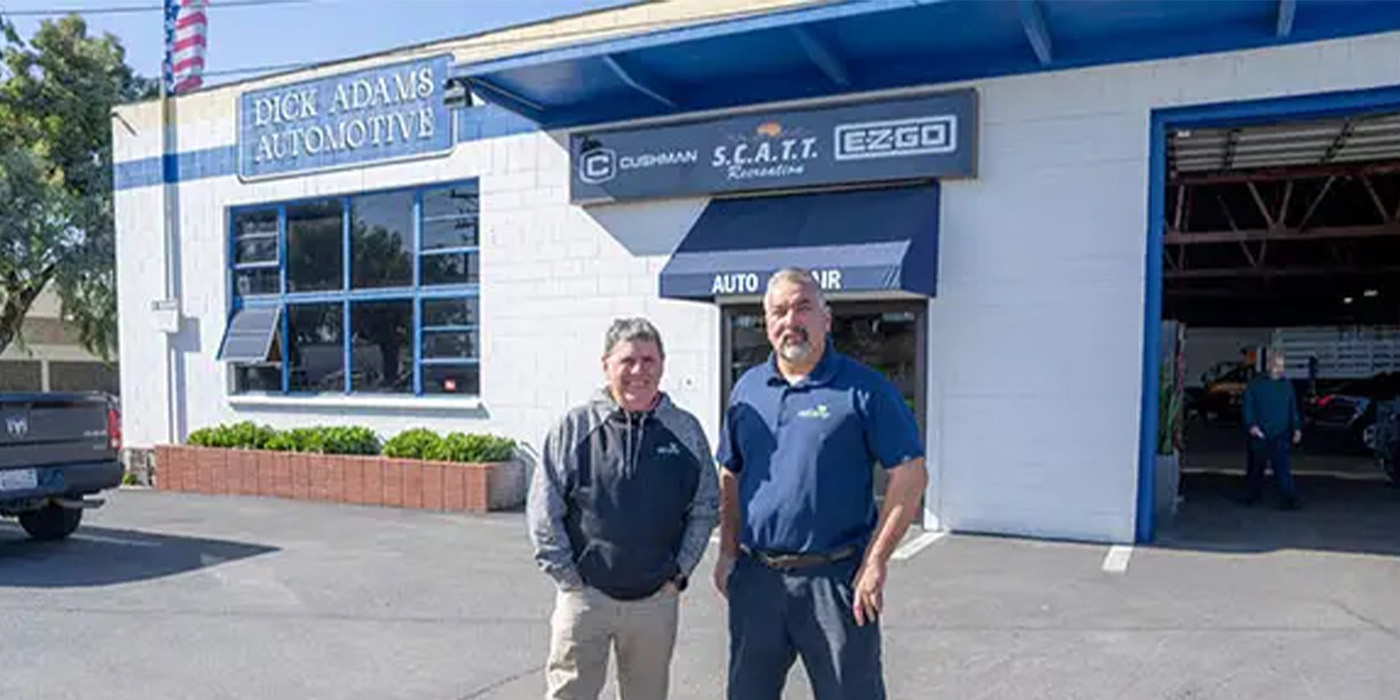The owners, operators and managers of many service and repair shops rely on the tax-saving abilities of professionals or software programs. Substantial tax savings are, however, largely the result of moves undertaken before the close of the tax year.
The income-shifting strategy of accelerating income to offset unusually high expenses, or postponing income until a later year when the tax bill may be lower, works only for those using the cash basis method of accounting. Every business can, fortunately, employ a number of legitimate strategies before the end of the year that make tax preparation easier, as well as producing a smaller tax bill.
WRITE-OFFS
Rare is the shop that doesn’t purchase computers, equipment, vehicles or other assets in the course of a year. For those considering buying a new piece of equipment, upgrading technology, etc., the time to do so is before December 31.
While the tax law offers the opportunity to depreciate those items over their useful life, faster write-offs are possible allowing a 100% write-off for those with profits that require reduction. Of course, not all assets qualify for the faster depreciation write-offs.
Buildings and their structural components aren’t eligible, nor is property that isn’t “placed in service” and not actually used in 2022. On the plus side, shops can now deduct or depreciate 100% of the cost of a truck or other vehicle.
Remember, however, bonus depreciation is currently 100% but is scheduled to be gradually phased out by the end of the 2026 tax year. That means bonus depreciation will only be 80% for assets placed in service in 2023.
ABANDON, DON’T IGNORE
If equipment or other assets have no value to the business, the benefits of abandoning it rather than selling might be rewarding. Abandonment could generate an ordinary, fully deductible loss, rather than treating the loss as a capital loss, which is subject to limitations. Of course, abandonment must be documented, and the property really abandoned.
REPAIRS AS REPAIRS
In 2013, the IRS issued regulations that allowed some capital improvements to be labeled as deductible “materials and supplies.” Today, the so-called “de minimis” safe harbor deduction for materials and supplies has been increased from $500 to $2,500, at least for those businesses without an applicable financial statement. It is not too late to update the shop’s policy for differentiating repairs from capital expenditures to comply with the updated regulation.
BAD DEBT DEDUCTIONS
While no one wants to write off accounts receivable as uncollectable, doing so creates a deduction for “bad debts.” The tax rules allow shops using the accrual method of accounting to deduct the bad debt from gross income. Of course, reasonable steps must have been taken to collect the debt — collection efforts now before the end of the tax year.
Using the final weeks of 2022 to attempt to collect all outstanding amounts, along with documenting those collection efforts, creates a bad debt deduction. After all, anything that feels like a lost cause can result in tax savings.
INCOME NOW AND LATER
When it comes to income, most small businesses are allowed to use the cash-method of accounting for tax purposes. The general rule for cash-basis shops are that they don’t have to report income until the year cash is received or a check is in hand. Cash-method accounting permits the micro-management of the shop’s 2022 and 2023 taxable income in order to minimize taxes over the two-year period.
A business operating on a cash basis for tax purposes anticipating higher profits in 2023 than in previous years may want to defer revenue as a way of reducing taxable income for 2022. Consider billing late in December or delaying the performance of services or delivery of certain products until January.
Alternatively, if the shop expects to be more profitable next year than in 2022, accelerating cash collection before December 31 would allow those amounts to be taxed at a lower rate. And, don’t forget the income limits for pass-through businesses.
DON’T FORGET THOSE CARRYOVERS
Deductions for capital losses, net operating losses (NOLs), home office deductions and even large charitable donations that cannot be fully used in one year may be carried forward to future years. These items have a way of slipping through the cracks, especially when switching tax preparers.
Ensuring losses aren’t ignored means making sure to track these deductions and note carryovers from the current tax year’s return. NOL carrybacks, of course, are no longer permitted.
That’s right, when a service or repair shop’s allowable deductions exceed its taxable income within a tax period, the result is a NOL. Most taxpayers no longer have the option to carryback a NOL, and although a NOL can now be carried forward indefinitely, it is limited to only 80% of the operation’s taxable income.
PROVIDE AN ECONOMICAL RETIREMENT PLAN
Offering a retirement plan can go a long way to keep a shop’s employees happy while serving as a magnet for needed new workers in today’s labor crunch. Not only can a retirement plan help retain talent, when the operation provides a qualified retirement plan or 401(k) plan, there are specific employer contributions and administrative fees that can be tax deductible.
As one example, eligible employers may be able to claim a tax credit, a dollar-for-dollar reduction of their tax bill rather than a deduction, of up to $5,000 for three years for the ordinary and necessary costs of starting a SEP (Simplified Employee Pension), SIMPLE IRA or other qualified plan such as a 401(k) plan. But, while in some cases actual contributions to these plans can be made after the end of the year, the plan itself must be established prior to the end of the year.
REASONABLE COMPENSATION
The IRS can, and will, in many cases, challenge salary amounts they deem to be “unreasonable.” While the factors used by the IRS and the Courts to determine reasonable compensation vary, the IRS typically looks at training and experience, duties and responsibilities, time and effort devoted to the business, and more. The Courts generally look at amounts paid by comparable businesses for similar services, the use of a bonus formula and the importance of the role played by the compensated individual.
PLANNING BEFORE YEAR-END
As the end of the service or repair operation’s tax year approaches, several general rules might help guide it to real tax savings – savings that will be consistent, year-after-year:
- Don’t spend money simply to reduce that tax bill. After all, $1 spent does not equal $1 worth of tax saved or create a $1 deduction. Also, as already mentioned, keep in mind that if those accelerated deductions result in a net operating loss (NOL), it can now only be used to offset tax bills down the road – there is no longer a NOL carryback.
- Know thy accounting method. Most year-end tax strategies work best for cash-basis taxpayers. Accrual-basis shops report all income in the year it is earned and all expenses in the year they are incurred. So, just because the shop is paying for a 2023 expense in 2022 doesn’t always result in an immediate deduction on the 2022 tax return.
- Worker classification matters. Every shop owner must correctly determine whether workers are employees or independent contractors. Independent contractors are not, of course, subject to withholding, making them responsible for paying their own income taxes plus Social Security and Medicare taxes.
- Now might be a good time to move all forms, invoices and receipts to one central location – either online or a filing cabinet – to be ready when it’s income tax time.
- Ensure that the shop will be taking every deduction available. Now is the time to keep abreast of our complex and fluid tax laws, along with compiling the records that will be necessary to document all transactions, incoming or outgoing.
Above all, remember the recently passed Inflation Reduction Act not only includes provisions impacting climate change and health care, it also provides significant funding for the IRS to increase enforcement, create revenue and close the tax gap. In other words, every service and repair shop, large and small, could see more audits.
PLANNING TO AVOID, NOT EVADE, IS LEGAL
No less a body than the U.S. Supreme Court has ruled that striving for the lowest possible tax bill is perfectly legal. Thus, planning to produce the lowest possible tax bill possible should be the goal of every shop owner. Accomplishing that goal year-after-year usually involves shifting income and deductions around to tax years where they will be the most productive.
Once the work is done and the alternatives tested, make sure the business is actually spending money and not just moving it around. While it is almost always recommended, few shop owners seem to get their tax professionals involved well before the end of the tax. But, how can anyone hope to know whether income deferral or accelerated write-offs will be of the most help in reducing this year’s tax bill – and the tax bills in future years?













